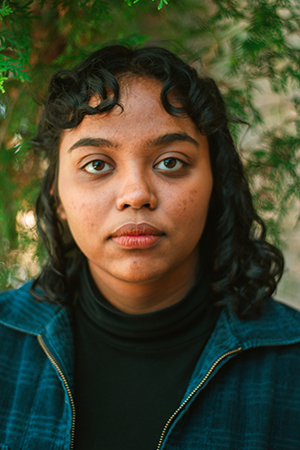Connections Enduring and Broken: Sarah Lachmansingh in Conversation with Sarah Yi-Mei Tsiang

Sarah Yi-Mei Tsiang, whose poems “The Snake,” “The air, then,” and “Integrated Care Hub” appear in The Malahat Review's fall issue #220, talks with Malahat Review Fiction Editorial Board intern Sarah Lachmansingh about being a magpie, pregnancy as a leap of faith, and processing the day's happenings through poetry.
Read her poem “The air, then” here.
Sarah Yi-Mei Tsiang is the author of Grappling Hook (2022) with Palimpsest Press, Status Update (2013), which was nominated for the Pat Lowther Award, and the Gerald Lampert award-winning Sweet Devilry (2011). Her work has appeared in Best Canadian Poetry (2013, 2021, 2023,) and Best of the Best Canadian Poetry. She has been both longlisted and shortlisted for the CBC poetry prize as well as shortlisted for the UK’s Forward Award. She is the editor of the poetry collection Desperately Seeking Susans (2013), the Poetry Editor for Arc Poetry Magazine, the Creative Director at Poetry in Voice, and teaches in both the UBC optional residency MFA program and the Vancouver Manuscript Intensive. She is also the author of eight children’s books.
What was your process like for writing the three poems published in issue 220?
Honestly, it’s mostly the same for everything I write: I have a meeting with my writing group and nothing to share so I sit down and I panic write. The subject is always something that has been worrying at me or something that happened that day that I’m still having trouble processing.
Can you talk about the final images in the three poems, and your experience when writing these endings? How do you typically approach an ending or decide when to end a poem?
For “Integrated Care Hub” I wanted to link the narrator’s life to the life of the unhoused that surround her. In the previous stanza she talks about the dog’s medication, amazon packages, and vegan snacks. In what’s left of the ripped-up shelter she names a pill bottle, shoes, and Oreos. This is a poem about connections, both enduring and broken, and I wanted the ending to circle back and reflect this idea.
In “The air, then” I felt like my baby was being created and born in a time of extreme tumult and danger. It didn’t reflect the sweetness of his beginnings and the carefree way we used to share air (which seems so distant now).
With “The Snake” I had actually reworked the ending several times. I wrote this when we had rented a cottage and spent an afternoon watching a snake trying to eat a catfish. I was hugely pregnant and this snake trying to stuff something unmanageable inside his body really resonated with me. It made me think of how pregnancies are a leap of faith—you have no idea how any of it will turn out and what capacities you have as a parent but you just do it anyway.
All three poems are brilliantly detailed. Can you discuss how you crafted a sense of atmosphere in your poems?
First of all—thanks! Almost everything I write is autobiographical or from my life in some way. All these details come from living in the world. I guess it’s just being a magpie and picking up whatever is shiny or weird or interesting. Then often when you’re writing it just pops up again—the smell of copper burning, or the photo of rat babies in a paper nest.
Your poem “Retirement Plans” was published in issue 213 of The Malahat Review and is a favourite of mine. How do you approach writing shorter poems like “Retirement Plans” and “The air, then”? What do you find most important to consider or include when writing a short poem?
It’s funny because when I started writing I wrote almost exclusively short poems. I was often a little afraid of going deeper or of the emotional commitment of longer pieces. I worked hard to push myself out of my little poems so now when I write a short poem I’m really trying to condense as much meaning as I possibly can in a small space through image and metaphor. My short poems are often a little surreal as well—I love nonsense that is somehow emotionally resonant.
Are there any poems you’ve read recently that have been especially memorable to you or inspirational for your own writing practice?
I’m currently reading Susan Musgrave’s new book Exculpatory Lilies. It’s absolutely breathtaking in its depiction of grief and every poem is just… crystal clear. It’s like looking at spring water and seeing miles underground. Her poem “All I wanted was to lie” is something I can’t stop reading. It’s just so damned good. Like, stop-you-in-your-tracks good. I ended up reading it on the train and sobbing beside my seat mate and making everyone very uncomfortable. So yeah, if you don’t have a copy run out and buy one.

Sarah Lachmansingh
* * * * * * * *









